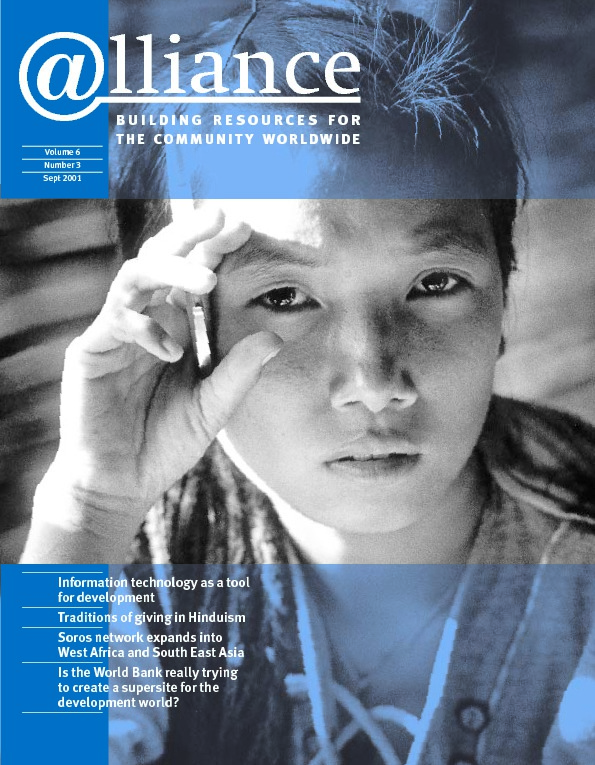What impact is the New (and Global) Economy having on the definition and practice of corporate citizenship? The editors of this work choose to construe the possible and probable impact on a for ‘good’ or ‘ill’ basis, for one of its findings is that ‘business behavior will [not] necessarily be better or worse’. This ‘on the one hand’ and ‘on the other’ approach may leave the reader somewhat dissatisfied and yearning for – as a popular joke has it – a ‘one-handed economist’.
But this would be missing the point with respect to the value of this work and its important contribution to understanding what is after all a body of very complex phenomena. Markets define opportunities, and generally set in motion business responses seeking to capitalize on these opportunities. The practice of corporate responsibility is a by-product of the success of some businesses in this regard. Its fortunes are very much tied to the market performance of the firm, its bottom line. Change the principles that guide business in responding to market stimulation, and you change the manner in which firms perceive their economic and, ultimately, their social options and priorities. The New Economy is about change; implicit in this is change in the way that a business perceives the need to be a ‘good’ citizen. It is all a matter of changing market dynamics, and globalization, however defined, has changed dynamics.
Does it then change the corporate citizenship dynamic? And, if so, in what way? The answer posited in this work is that it does. An overview is put forth by the editors. One must read this, for without this framework one is left having to sort out a considerable array of opinions and insights that follows from the some 16 contributors to this work. Some of these contributions strike me as no more than ‘journalistic sound bytes’, others have far more depth and impart a sense of ‘weight’ to the conclusions. Overall, the work presents a high standard of intellectual discourse on the subject.
The answer to the question, as far as I can figure out, is ‘yes’, the New Economy has engendered a new corporate citizen calculus – but clearly not necessarily for the ‘good’. There is one passage that particularly caught my eye, and it is most important to making this new calculus a bit better. In speaking to the Partnership Boom – in the view of the editors, one of the major outcomes of the New Economy bearing directly on corporate citizenship – it is observed that ‘partnerships are not universally embraced. Advocacy, and the more politicized, representative grass-roots NGOs are the most reluctant partners.’ To which I can only say, ‘Amen.’ For then one cannot lay blame – for failure to respond to an important impact of the New Economy on corporate citizenship practices – at the doorstep of the private sector. Perhaps another work, on the impact of contemporary economic change on NGO attitudes, is in order.
Delwin Roy is a consultant on strategies for global corporate community involvement. From 1985 until 1998 he was President and CEO, The Hitachi Foundation. He is now Director, Loita Capital Holdings Africa, based in Johannesburg, and Chairman and CEO, the Eric Edward Roy Fund for Education in Africa (a Washington DC-based non-profit). He can be contacted by email at DARoy@aol.com
Perspectives on the New Economy of Corporate Citizenship
Simon Zadek, Niels Hojensgard and Peter Raynard (eds) The Copenhagen Centre
Available free of charge from The Copenhagen Centre.
Email tcc@copenhagencentre.org
Website http://www.copenhagencentre.org



Comments (0)